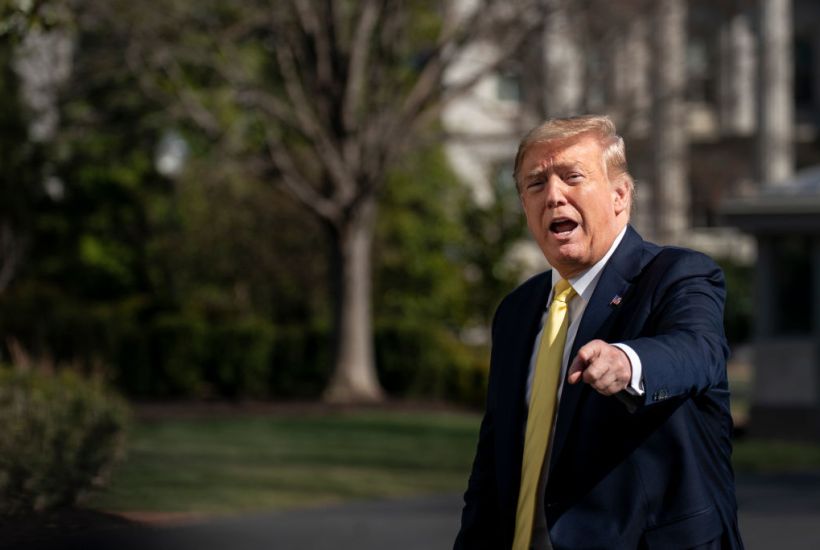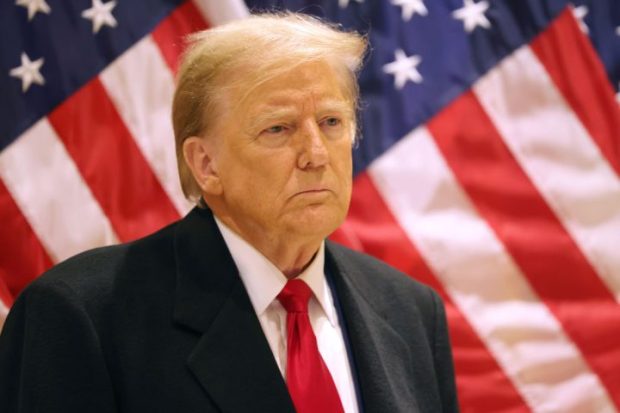‘We’re going to have insurance for everybody.’ That was the promise Donald Trump made on healthcare in January 2017. ‘There was a philosophy in some circles that if you can’t pay for it, you don’t get it. That’s not going to happen with us.’ President Trump has failed to deliver on this promise.
Meanwhile, Bernie Sanders and Joe Biden are now fighting it out for the Democratic nomination. Both Bernie and Joe promise increased investment in healthcare, and public support for increased government spending continues to grow. Calling Sanders a socialist might have worked 35 years ago, but it might not be enough today. Polling suggests he could beat Trump in November. And if Biden wins, he will carry a tide of African American support into the general election.
If Trump is serious about winning, he should return to the unashamedly populist messaging that elected him in the first place. Front and center of this messaging should be a commitment to implementing a single-payer, universal health system for all US citizens over the course of his second term. Universal health coverage (UHC) presents a golden ticket for Donald Trump and the Republican party to save lives and money, while enabling opportunity amongst the people who put him in the White House. If Trump pulled it off, he could bury the left for a generation. ‘What [changes] the world,’ Richard Nixon once said, is ‘Tory men and liberal policies’ — that is, conservative leaders who strive to improve society. Nothing has changed.
How could it be done? A recent analysis in the Lancet found that a single payer, universal health system could yield a 13 percent saving in US healthcare expenditure — more than $450 billion annually. This would come at a lower cost than the total of existing premiums and government contributions to the health system. Any savings would be valuable, with US health spending already exceeding any other developed nation on a per capita basis.
Notoriously, the US is the only highly developed country in the world without some form of universal health coverage for its citizens. More than 78 million Americans lack adequate health insurance; 37 million lack any insurance at all. The Lancet paper estimates that implementing UHC would save 68,000 lives and 1.73 million life years than the status quo. No doubt these benefits would lead to widespread productivity gains that further boost America’s already strong economic growth.
We all know that the US health market is inefficient and fails to deliver quality healthcare to large swaths of the population. The people it really serves are doctors and insurance executives who overcharge for services, all the while failing to deliver real value to patients and protecting their pay packets from reform in Washington through aggressive lobbying efforts. Advancing UHC would create a fairer, more productive America.
What of the costs? Trump need not advocate for all the policies suggested in the paper, which include higher taxes on the rich. If tax increases are unpalatable for Republican donors, and if Trump believes his corporate tax cuts will drive growth, he could borrow against future increases to the tax base and fund UHC while interest rates are low. Alternatively, Trump could consider cutting costs in other areas, or, even better, leverage America’s sheer size to squeeze a better deal out of pharmaceutical companies, payers and providers, as other smaller countries like Australia already do.
Health coverage and health policy has been at the heart of the Democratic primary. The Democrats understand that healthcare represents the best opportunity to mobilize their base and win back key swing states like Pennsylvania that will decide the election in November. If Trump took the bold political move of implementing UHC, he would not only improve the lives of millions of Americans and save hundreds of billions of dollars, but also neutralize one of the most powerful political attack lines that the Democrats have against him. To understand the political benefits of equitable and compassionate health policy, Trump should look to the lessons of recent election victories for center-right governments in the UK and Australia.
In the UK, Boris Johnson achieved his historic election win with simple promises: get Brexit done, more police on the streets, and record spending on hospitals. Corbyn and Labour attempted to paint the Tories as untrustworthy. However, Boris’s clear message and commitment to public services was popular; Jeremy Corbyn was left floundering. The Tories’ victory cannot be explained by Brexit alone. Voters reward investment in public services like healthcare when it comes with a commitment to fiscal responsibility.
During the recent election in Australia, Prime Minister Scott Morrison promised record investment in the publicly funded Medicare system, neutralizing Australian Labour attack lines that proved effective at previous elections. Despite frequent claims that Morrison’s Liberal and National party coalition were planning to ‘privatize Medicare’, voters were not persuaded: Morrison won a close fought victory against the predictions of pollsters and betting markets.
In the UK and Australia, both staunch allies of the US, publicly funded healthcare is supported by the left and the right. No one is claiming that these systems are perfect; in fact, there is much need for reform. For example, Australian health spending is increasing as a proportion of GDP. Yet, according to Australia’s Productivity Commission, the system continues to spend a significant amount on ‘health interventions (tests, procedures, medicines) that are irrelevant, duplicative or excessive, provide very low or no benefits (relative to the risks and costs), or, in some cases, cause harm’. There are clear opportunities here for reform, just as there are many in the British National Health Service.
However, the general principle that society provides a basic standard of care for its citizens, regardless of socioeconomic status or background, is staunchly defended across the political spectrum. Despite this, the Republicans have politicized healthcare, fighting the Democrats out of principle rather than considering what is best for the American people. This is imprudent and misguided.
Over many decades we have been brought to believe that the notion of UHC is a socialist endeavor and out of step with the Republican party’s ideals. However, this is a highly tenuous argument. The premise of conservatism is to construct a society which enables citizens to live a safe and secure life. Good healthcare is a cornerstone of that vision. It’s not 1983 anymore. Mr Reagan and Mrs Thatcher are long gone. Conservatives across Europe, and the world, are rediscovering the capacities of the state.
A commitment to reform doesn’t mean the end of America’s private health insurance market. While UHC will require public investment, there are successful examples of public and private systems working side by side. For inspiration, American lawmakers could look to Australia, where a mixed private/public system produces better health outcomes at a lower price point than the USA. While the authors of the Lancet paper advocate for a single payer model, structural details can be finalized following negotiation efforts with key stakeholders; the critical first step is political leadership and an ironclad commitment to reform America’s broken healthcare system.
Whether Trump faces Sanders or Biden in November, healthcare might become the key issue of the contest, particularly if the impact of the coronavirus is still being felt. If Trump implemented UHC, what would the Democrats have left? Unpopular debt forgiveness programs for the upper-middle class. A farfetched environmental policy. The usual ideas about race, sex and gender that dominate many American universities, but have little support from the public at large. If Trump supported UHC, it is not clear what path to victory Democrats would have in 2020 and beyond.
Implementing UHC is the right thing to do both from philosophical and policy perspectives: it would save American lives, generate economic growth, and conserve tax-payer dollars. It represents Trump’s best shot at another four years in the White House.
Daniel D’Hotman is an Australian Rhodes Scholar, medical doctor and DPhil candidate at the University of Oxford. Will Lloyd isn’t.
See the full story of Trump could bury the Democrats for decades by embracing universal health coverage on Spectator USA.
Got something to add? Join the discussion and comment below.
Get 10 issues for just $10
Subscribe to The Spectator Australia today for the next 10 magazine issues, plus full online access, for just $10.




















Comments
Don't miss out
Join the conversation with other Spectator Australia readers. Subscribe to leave a comment.
SUBSCRIBEAlready a subscriber? Log in